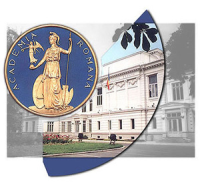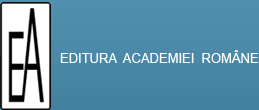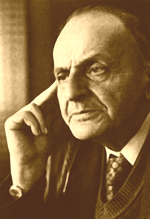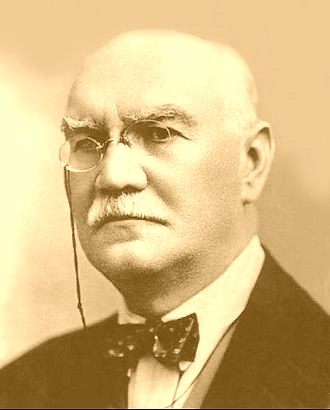Main Menu
DEPARTAMENTE
REVISTE
PUBLICAŢII PERIODICE
LEGĂTURI
CONFERINȚE
 Simpozionul Național Constantin Noica, Ediția a XVI-a „Povestiri despre om…” (26-29 septembrie 2024)
Simpozionul Național Constantin Noica, Ediția a XVI-a „Povestiri despre om…” (26-29 septembrie 2024)SIMPOZIONUL NAŢIONAL
SIMPOZIONUL NAŢIONAL
Welcome
INTERNATIONAL CONFERENCE
victorg, Thursday 29 September 2022 - 11:41:38 //
INTERNATIONAL CONFERENCE OF THE INSTITUTE FOR PHILOSOPHY AND PSYCHOLOGY
“CONSTANTIN RĂDULESCU-MOTRU”, ROMANIAN ACADEMY
Sept. 29 – 3 Oct. 2022
Organizer: Mircea Dumitru, Ilie Pârvu, Marius Augustin Drăghici
Invited Keynoters: Michael Potter (University of Cambridge), David Rosenthal (City University of New York - CUNY), Timothy Williamson (University of Oxford), Graham Priest (City University of New York - CUNY), Vasso Kindi (University of Athens), Alejandro Cassini (University of Buenos Aires), Hernan Pringe (University of Buenos Aires), Bogdan Suceavă (California State University), Paul Hoyningen-Huene (Leibniz University of Hanover), Sandu Popescu (University of Bristol)
Invited Keynoters: Michael Potter (University of Cambridge), David Rosenthal (City University of New York - CUNY), Timothy Williamson (University of Oxford), Graham Priest (City University of New York - CUNY), Vasso Kindi (University of Athens), Alejandro Cassini (University of Buenos Aires), Hernan Pringe (University of Buenos Aires), Bogdan Suceavă (California State University), Paul Hoyningen-Huene (Leibniz University of Hanover), Sandu Popescu (University of Bristol)
From an epistemological standpoint, guided by Kuhn’s perspective on the structure and the dynamics of scientific revolutions, what stage are we in now? Are we still in the stage of “extraordinary science”, or in that of “normal science”? But in this last case, which is the “official” theory? Could it be the “String Theory”? Brian Greene says yes, Sir Roger Penrose says no (a different theory is expected to provide a more appropriate explanation for the new realities of contemporary science).
Other problems and questions within (the theorizing of) science shape the corresponding epistemological ones: what is the nature and structure of the quantum object? respectively what do we try to know at last – what does our epistemological concept of “reality” actually contain?; “the measure problem” (the role of the “intervention” of the methodological instrument in the referential system) also reveals issues such as the “Quantum Entanglement” and/or “Quantum non-locality” problem, the “Wave function’s collapse” problem, shaping the epistemological ones such as subject-object problem within (scientific) knowledge – where subject ends and where object begins (the problem of object being conditioned by subject), the problem of the category of causality (the reciprocal simultaneity and the temporal direction of causality), etc.
We invite you to participate with talks related to the above topics but not strictly dependent on them. Beyond these, any attempt to answer some more general questions will be considered, such as: can one still work in the field of epistemology and philosophy of science without knowing and without being close to the instruments and the “laboratory” of sciences? How does the philosophical-epistemological standpoint still weigh in relation to the scientific-epistemological one in the elaboration of contemporary epistemologies? Are the limits of scientific knowledge the same as the limits given by the tools that became necessary to the researcher? What is now the relation between the dynamics of the epistemological conceptions and the evolution of science? What role may epistemological bias play in relation to the explanatory models required by the scientific theories developed today?
Presentations of relatively recently completed projects or arguments in favor of ideas that you are working on are also welcome.
The language of the conference is English. Those interested to participate are invited to send an abstract (250-300 words) to ifilosofie@yahoo.com or mariusdraghiciinstitut@yahoo.com (due-date 31th of August, 2022). The (final) results of the selection process will be announced until 15th of September, 2022. Each presentation will be allotted 50 minutes (35 minutes presentation, 15 minutes debates).
Presentations of relatively recently completed projects or arguments in favor of ideas that you are working on are also welcome.
The language of the conference is English. Those interested to participate are invited to send an abstract (250-300 words) to ifilosofie@yahoo.com or mariusdraghiciinstitut@yahoo.com (due-date 31th of August, 2022). The (final) results of the selection process will be announced until 15th of September, 2022. Each presentation will be allotted 50 minutes (35 minutes presentation, 15 minutes debates).
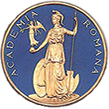

 P S I H O L O G I E
P S I H O L O G I E